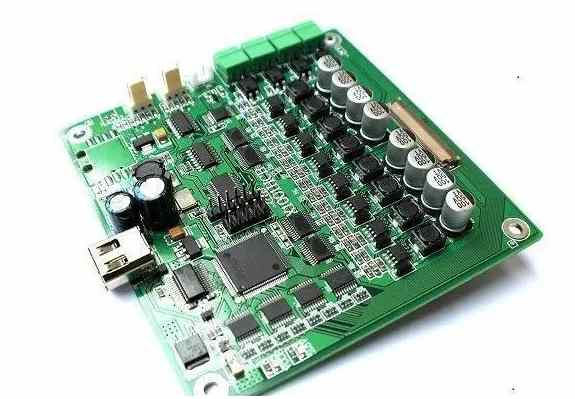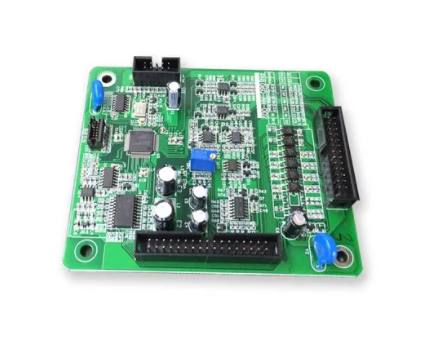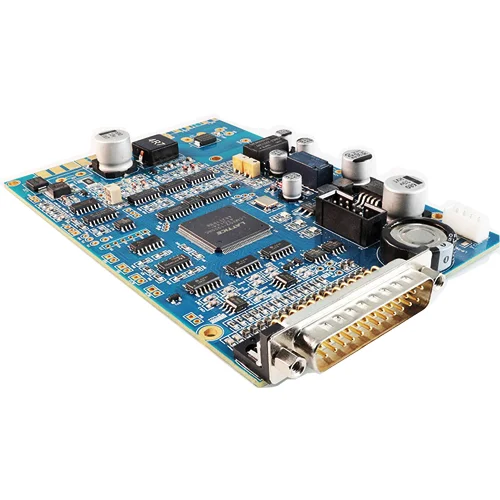
Although domestic EDA has made progress, but as mentioned at the beginning of this article, the gap between us and foreign enterprises is still quite obvious. It is mainly manifested in the following aspects:
Products are not complete, especially in the digital circuit, our entire domestic EDA industry in this field is obvious shortcomings.
At Huada Jiutian, for example, only about a third of the product has been made and another two-thirds needs to be filled, according to people familiar with the matter. And an important reason for this situation is that there is not enough manpower to support the research and development. In the past discussion on EDA development in China, the industry, academia and research circles have said that if China wants to make a complete set of EDA tools, it cannot be done by a single domestic manufacturer in a day, but needs diversified cooperation.

* two, the lack of combination with technology;
In the modern integrated circuit industry, the docking bridge of chip design and manufacturing is very important, because only by dealing with this part well, can the chip be best manufactured. EDA just plays such a role, but when we are docking, there are two difficult gaps:
On the one hand, domestic EDA manufacturers have fewer opportunities to contact with the process, limiting our improvement.
It is understood that the most advanced wafer manufacturers, such as Taiwan Semiconductor Manufacturing Co., LTD., and Samsung Co., LTD., will not cooperate with domestic EDA manufacturers when developing new processes, which makes it impossible for us to obtain relevant support from foreign manufacturers. Of course, in my opinion, this is understandable. After all, the manufacturer has no obligation to take such risks.
Even though domestic EDA vendors have made progress in some aspects, wafers like Taiwan Semiconductor Manufacturing Co., LTD. (TSMC) will introduce Cadence and Synopsys early in the development of next-generation processes, rather than domestic EDA vendors. When the former collaborates with new chipmakers on new processes, Will * * go up another floor. Their strong strengthening, further widening the gap with domestic EDA.
People familiar with the matter said that even if the domestic EDA industry will cooperate with a manufacturer such as Taiwan Semiconductor Manufacturing in the process, it will not be introduced early, but later in the process development, and these cooperation is only part of the process, which makes the domestic EDA industry does not have access to the first part of the process.
On the other hand, our deficiency in PDK has also caused some adverse effects on the development of domestic EDA.
PDK is the abbreviation of Process Design Kit, Chinese translation is integrated circuit process design package. This package provided by the Fab includes SPICE (Simulation Program with Emphasis) parameters for process circuit simulation, hierarchy definitions for layout Design, Design Rules, transistors, resistors, capacitors and through-holes (VIA), The layout of the basic structure such as PAD, design rule check (DRC), parameter extraction (EXT) and layout circuit control (LVS) associated with the design tool are the key to the successful production of the designed chip in the wafer factory. This is the communication IC design company, OEM and EDA manufacturers bridge.
The absence of domestic manufacturers in PDK has affected the development of domestic EDA industry to some extent. Relevant people told the semiconductor industry observer reporter.
Third, the lack of talent investment;
Talent shortage is a key factor limiting the development of domestic EDA, weak research and development team can not support a large number of difficult tasks. The root cause of this appearance is the lack of industry investment in EDA.
Statistics show that there are about 1500 people working in EDA software development in China, but less than 300 people are working in local EDA companies and research units. The rest are mostly working in member companies. When magnified to **, compared to the 7000 + R&D personnel of Synopsys (more than 5000 of them are engaged in EDA research and development, the rest are engaged in IP research and development), this gap * is obvious.
Finally, in terms of R&D investment, there is also a gap between China and its members;
According to semiconductor industry observation, among the current local EDA companies, even if the team size is large and established for a long time, the research and development funds they spent in the past ten years is only a few hundred million, compared with foreign competitors' annual investment of billions (distance: Synopsys spent about $810 million on research and development in 2019), which is a drop in the bucket. If domestic EDA wants to further develop, increase investment is also imperative.
How to break through?
Now that we know where the gap is, what domestic EDA needs to do is to break each other.
Although the influence of members in the EDA industry is strong enough, the profit state of the EDA industry makes it impossible to attract enough investors, start-ups and talented enough to invest in this field, so domestic EDA wants to break through, still need to spend a little more thought and effort.
Faced with the problem of product dispersion and lack of comprehensive, I believe those EDA manufacturers who have received several rounds of investment must be rubbing their hands, increasing investment in research and development, actively expanding the field to be developed, to meet the diverse needs of downstream design and manufacturing. However, it would be a great boost and encouragement for them to get support from various sources such as regional funds.
As for the lack of integration with the process, it is necessary for domestic fabs to improve their own manufacturing technology and strengthen cooperation with fabs. But we should also be clear that the iron needs to be hard.
When it comes to the problem of talent shortage, it needs to be solved from the root.
On the one hand, the reason why there are fewer employees in EDA industry is that EDA development itself has a high threshold, requiring comprehensive talents such as computer and mathematics; On the other hand, overall pay is low. This makes many EDA, especially young EDA, turn to AI and Internet industry, which requires manufacturers to solve each problem. In order to meet the demand and flow of talents, EDA members at home and abroad also set up research and development centers in Nanjing, Wuhan, Chengdu and other places.
However, in our opinion, if we want to solve the talent problem of EDA, we not only need improved treatment, but also use equity incentives and other ways to let the spirit of the owners to do product development, so as to attract more people to invest in it, and then produce the best results.
Now, local EDA manufacturers are also in the field of their own expertise in a single breakthrough, if they can from the point to the surface, development, to the next level, to create local EDA competitiveness, but this needs the joint efforts of all sectors of the industry chain.









